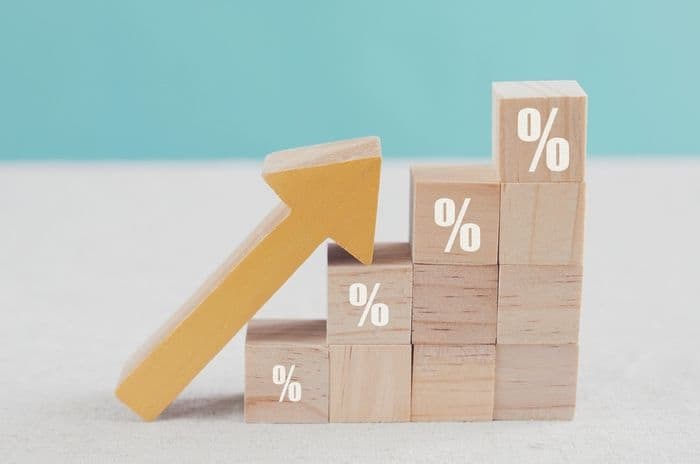Home > Money > News > Inflation set to rise by being linked to housing costs
Inflation set to rise by being linked to housing costs
The Office for National Statistics (ONS) have announced that they're to begin including housing costs in their consumer prices index (CPI), suggesting that inflation is likely to rise.

From March 2017, the CPI will become the CPIH, which incorporates the cost of owning a home into its tracking of everyday prices paid by customers.
And since homes show no sign of ending their rise in value, it's almost inevitable that this change will cause inflation to increase by a noticeable margin.
Yet as discouraging as this might seem at first glance, a new, higher measure of inflation may eventually end up increasing the worth of people's pensions, benefits, while decreasing the cost of mortgage payments.
Inflation and house prices
However, to begin with, the ONS' new preferred measure of inflation will take some time to spread outwards to other institutions and the rest of the country, since the current CPI is written into all relevant legislation.
It therefore won't have an immediate effect on the cost of living, and could even take several years to filter out.
Still, there's little doubt that it will result in a higher rate of inflation, since the current annual rate provided by the CPIH is 1.2%, in contrast to the 1% of the CPI.
And this is at a time of an ongoing housing crisis. Only yesterday, the Royal Institution of Chartered Surveyors (RICS) have just warned that the "dire shortage of available housing across the UK is continuing to push prices upwards".
They noted that 23% of UK surveyors reported price rises for the month of October, in contrast to the 18% of September. They also noted that "10% more respondents [reported] a rise in demand from buyers in October rather than a fall."
With such a continuing rise in price and demand, it's clear that the new CPIH will drive inflation upwards to a greater extent than before, especially with today's news that UK construction is at its lowest level in four years
Income and benefits
However, in one respect the CPIH is only good news. That's because, in reflecting the actual cost of living more accurately, the new measure will make it likelier that people will receive a more proportionate income.
There will, for instance, be more pressure on their employers to increase their salaries by a bigger margin, with any increase being compared against higher rather than lower benchmark.
Of course, no employer will be obliged to keep salaries in line with inflation, yet a higher inflation rate will nonetheless make them look all the more miserly for increasing wages by 1% rather than 1.2%.
It will also make the Government appear stingier for not uprating benefit in line with an increased rate of inflation.
This is, unfortunately, something they'll be refusing to do in the short-to-medium term, with a Treasury spokesperson confirming that the Government have no immediate plans to harmonise benefits, tax threshold and payments with the new CPIH.
Interest
And while the Bank of England have no immediate plans either to change their monetary policies in view of the new measure, it's worth underlining that their setting of base interest rates is tied to inflation.
In theory, this possibly indicates that an increased rate of inflation will make them likelier to keep their interest rate lower.
If this happens, then homeowners will have to pay less in terms of the interest on their mortgage repayments, which in turn will stop the new housing cost-linked inflation rate from climbing too high.
Yet while this will be good for homeowners, it may not be so good for savers.
With a higher rate of inflation and a correspondingly lower rate of interest, savings accounts will inevitably be worth less.
Pensions and precedents
Getting a better rate on your savings
Are 'regular' savings accounts worth it?
That said, it would be good news for pension holders, even if it may make it harder for pension fund managers to close the gap between assets (what is actually in the fund) and liabilities (what it owes to holders).
This is because pensions are tied to the rate of inflation, which is used to make sure that a pension salary keeps pace with the cost of living, even after someone has begun their retirement.
Yet once again, it must be underlined that the Government have no plans to switch from CPI to CPIH.
As such, pension holders - like benefit claimants and owner occupiers - will miss out on potential gains, while the ONS will add insult to injury by reminding them that the cost of living has gone up by even more than usual.
Then again, their move sets a precedent that, sooner or later, the Government and Bank of England may very well be forced to follow.
Receive consumer updates that matter in our newsletter
Receive consumer updates that matter in our newsletter

We are independent of all of the products and services we compare.

We order our comparison tables by price or feature and never by referral revenue.

We donate at least 5% of our profits to charity, and we aim to be climate positive.
Latest News

26 October 2022
Cost of living showing worrying trends in affordability
16 June 2022
FCA warn lenders on cost of living difficulties


